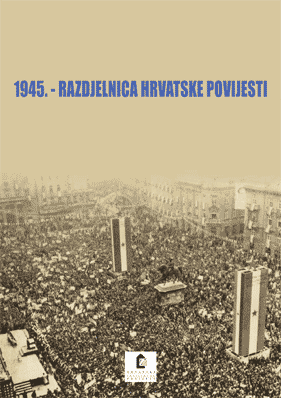Ideologijska rekonstrukcija hrvatskog antifašizma : primjer Istre
Ideological Reconstruction of Croatian antifascism : the example of Istria
Author(s): Darko Dukovski
Subject(s): History, Political history, Recent History (1900 till today), Pre-WW I & WW I (1900 -1919), Interwar Period (1920 - 1939), WW II and following years (1940 - 1949), History of Communism, Between Berlin Congress and WW I, Historical revisionism, Fascism, Nazism and WW II
Published by: Hrvatski institut za povijest
Summary/Abstract: Antifascism in Istria is a complex historical and political phenomenon which carries within itself various social, national, cultural and political motives. It is not ideogically and politically, nor socially and nationally, unique. It was not a unique movement, not even among a group of politically active citizens. From its origins at the beginning of the 1920s, it contained a wide panoply of motives, aims and social supporters. Antifascism in Istria was at the same time urban and rural, Italian and Croatian-Slovenian, clerical and atheist, anti-communist and pro-communist. In such variety antifascism appears in Istria almost at the same time as the establishment of the first fascist organizations. It appeared first of all in opposition to fascist violence, and afterward as opposition to the violent national assimilation of Istrian Croats as well as opposition to social and class oppression. Its motives and activities overlap and achieve fuller expression. Even in the two greatest instances of armed antifascist uprising that occurred in the prewar era, the Republic of Labin and the revolt in Proština, both in 1921, these components are interwoven. It can be concluded that Istrian antifascist resistance was a constant which appeared relatively early, before fascism came to power, in rather varied forms and among various social, national and political factors which would significantly influence the political life of interwar Istria, but also the period of the war in which the most important social and politcal turning point occurred. Croatian antifascism was especially united during World War Two and despite minor disturbances remained committed to the same course of struggle against fascism and promotion of national unification and liberation. It was only after the liberation that it split along the lines of reaction to the communist (Bolshevik) system and the issue of relations with the Catholic Church.
Book: 1945. - Razdjelnica hrvatske povijesti
- Page Range: 147-165
- Page Count: 19
- Publication Year: 2005
- Language: Croatian
- Content File-PDF

